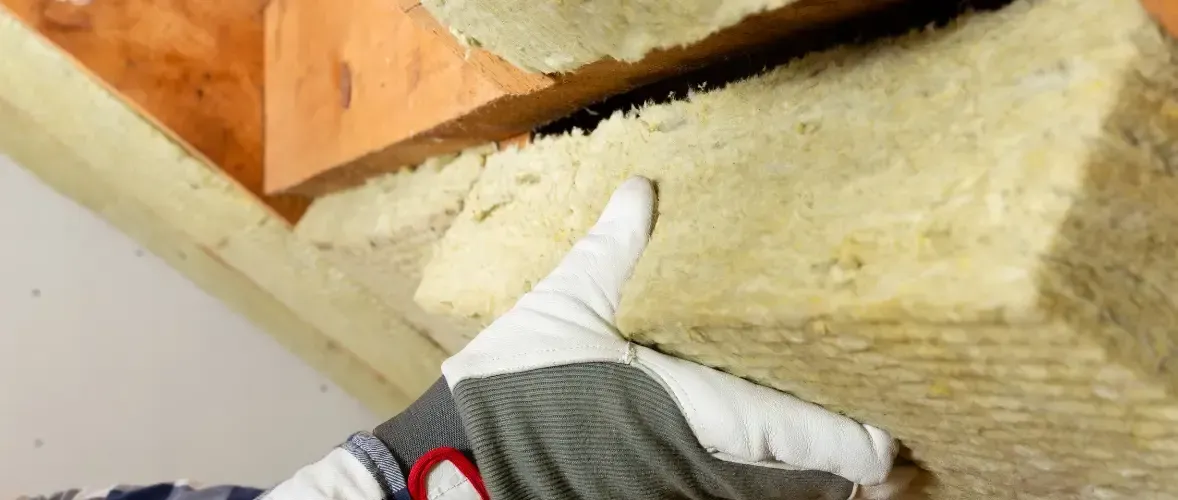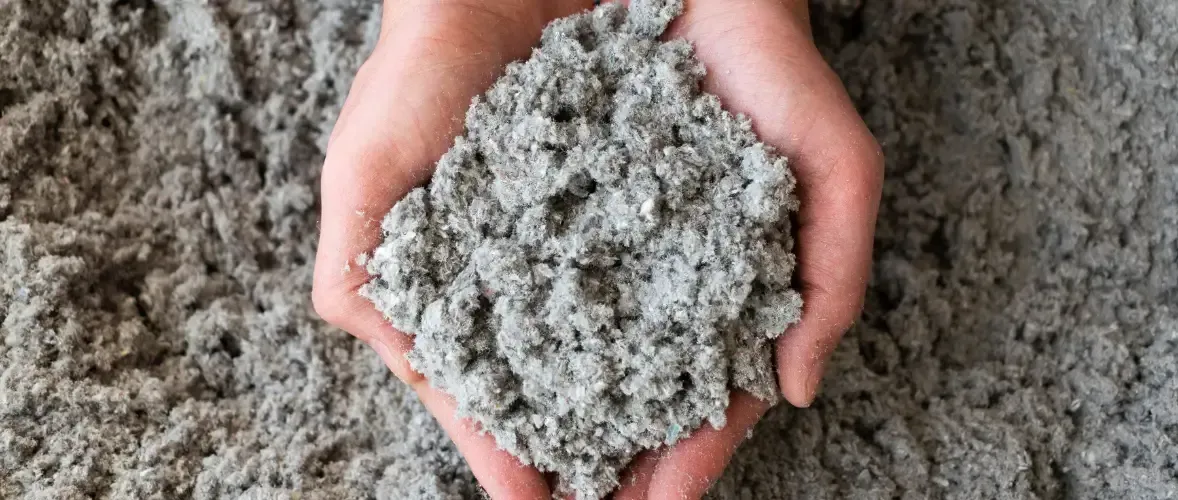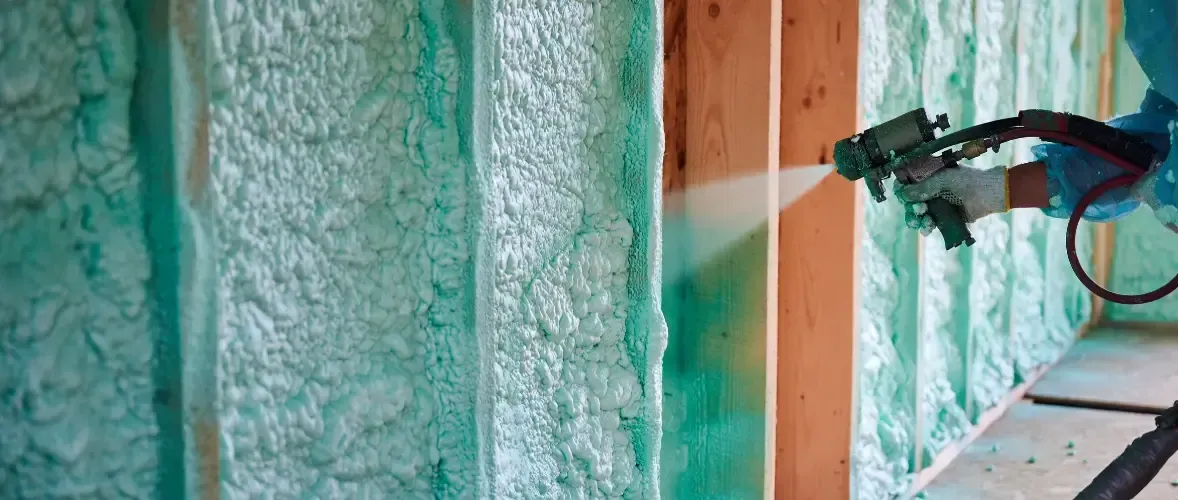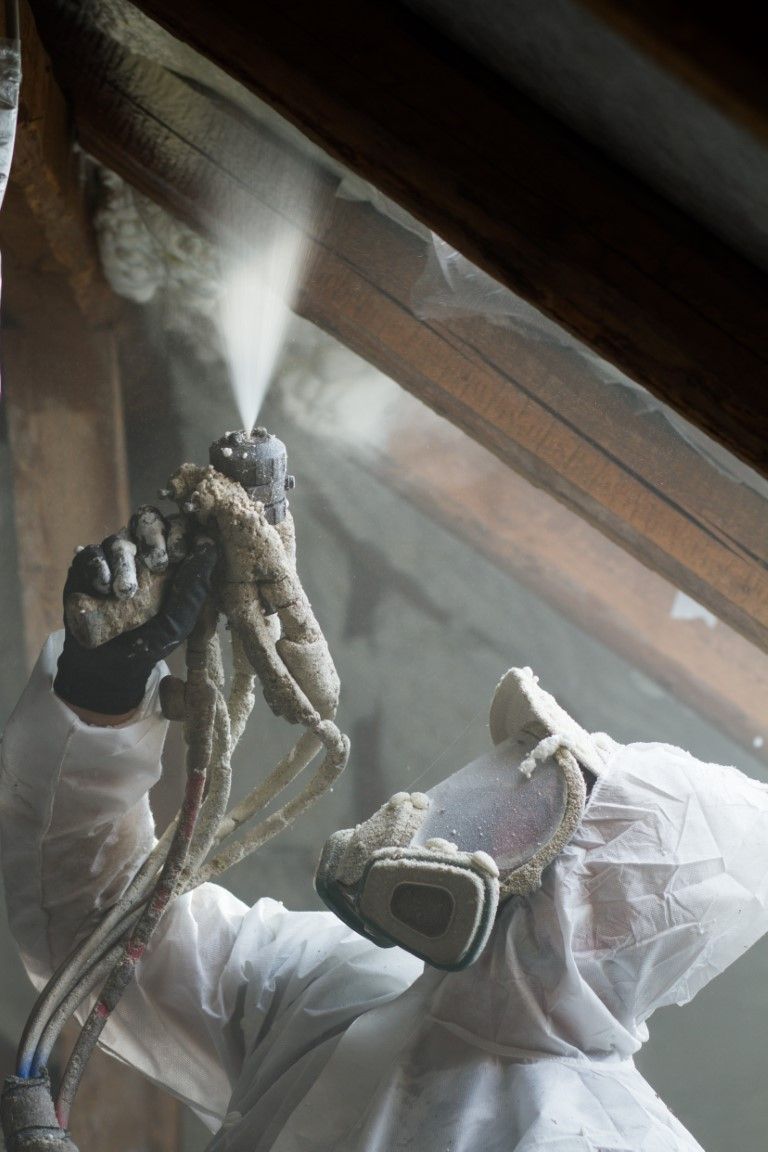Beaverton Insulation Pros
360-773-2422
Insulation Installation in Beaverton, OR

Contact Us
We will get back to you as soon as possible.
Please try again later.
bbbbbbbbbbbbbb
-
Highest Quality MaterialsItem Link List Item 2
We use top-quality materials to ensures your home stays comfortable and efficient for years. With premium insulation like fiberglass or spray foam, you'll enjoy superior thermal protection and soundproofing, guaranteeing lasting comfort and energy savings.
-
Professional and ReliableItem Link List Item 4
Our contractors are committed to delivering exceptional service and ensuring your home remains comfortable and energy efficient. You can be confident in our expertise and dedication to providing quality insulation services. We'll arrive ready to start, clean up at the end of the day with minimal disruption to your home or business.
-
Expert InstallationItem Link
When it comes to insulating your home, nothing beats the expertise of a professional insulation contractor. With expert installation, you can trust that every inch of your home will be properly insulated, ensuring maximum energy efficiency and comfort year-round.
Learn About The Types Of Insulation
Suppose you’re looking to decrease your home energy bill or increase your home’s value before putting it on the market. In that case, you might consider replacing your home’s existing insulation or installing an insulation product for the first time. You have numerous options to consider when choosing the perfect product for your home. So what's the right choice? Contact our experts to help you make the right choice. Whether it’s residential or commercial property, we can evaluate your properties' needs, and select the right product based on your project. Before selecting a product, we will discuss:
- Your home's age – Insulation will reduce your home energy bill, but it also works in conjunction with other systems to prevent heat transfer. If your home has damaged building materials, roof leaks, or an aging HVAC system, the R-value of the insulation product will matter less than the general disrepair of your home.
- Your budget – You should choose the best product in your price range and that’s appropriate for the application.
- Product longevity – Insulation is exposed to normal wear and tear, but different products respond differently to typical aging. Even products with high R-values can lose R-value as they degrade.
- Placement and applications – If you install a high R-value product in your attic and then compress it all with storage boxes, you may have defeated the purpose of installing a high-resistance product. Choose the option that works best for your specific applications.
Fiberglass Batt Insulation
Fiberglass batt insulation is widely used in residential and commercial buildings because of its affordability. The composition is just what the name implies, glass fiber mixed with a binder, which allows the fibers to create a dense, fluffy material. Fiberglass batt is most commonly used for attic insulation, walls, and other spaces. The main benefits are that batt insulation is easy to install and less expensive compared to other products. Some of the drawbacks are the material can be itchy and the fibers could cause some respiratory problems. You should always wear a mask and gloves when handling fiberglass batts. The biggest drawback is the batts are not resistant to moisture, mold and mildew, and should not be the first choice for insulation in places with higher humidity or prone to water leaks.
Mineral Wool Insulation

Mineral wool - not to be confused with Sheep’s wool - is fiber-based insulation that is typically sold in batts or as loose-fill material. This product can be used in all areas of the home. Mineral wool provides thermal insulation, sound barrier, and fire protection. Mineral wool batts have a significantly higher R-value compared to fiberglass batts. There are 2 types of wool insulation. The first is mainly made of natural stone fibers. This mineral wool is made from volcanic rock that is melted then spun into a wool-like material and bound together by resins and oils. The second is made from slag, a waste product in the production of steel or a combination of slag and natural rock or glass. Mineral or stone insulation contains up to 90% recycled material.
Blown-In Fiberglass Insulation
Blown-in fiberglass insulation is composed of plastic threads combined with recycled glass spun into fibers, offering excellent resistance to heat. Its composition makes for easy installation in a variety of places. Some pros to blown-in fiberglass insulation is that it's very resistant to moisture, mold and mildew. It’s non-combustible, which increases fire safety, making it a good choice for various climates. The durability of blown-in fiberglass insulation provides for long-term cost savings. Despite the pros, there are some drawbacks to blown-in fiberglass insulation. Its production uses more energy and less sustainable materials, decreasing its eco-friendly value. The upfront costs are greater than other types of insulation. Additionally, there is a potential risk due to the fine fiberglass particles. Always wear a mask and gloves when working with this type of material.
Blown-In Cellulose Insulation

Blown-in cellulose insulation is made up of wood and recycled paper products such as newspaper, cardboard, and other paper items. Cellulose is viewed as an environmentally-friendly product to choose from because it uses up to 85% recycled materials. Cellulose is a clumpy, thick, and dense material resembling down feathers. This makes it a great choice for enclosed areas such as walls. Cellulose is one of a few options to add insulation between existing walls without having to remove drywall, making it a great choice for adding or topping off insulation. This product is also used in areas with obstacles, such as ductwork and wiring, as it conforms naturally. The cellulose material is treated with borates which fortifies the material to become highly fire resistant. This chemical treatment also deters insects and vermin.
There are some drawbacks to blown-in cellulose insulation, most notably that it settles over time, creating open spaces above the insulation. This is troublesome for walls, which would leave an unprotected area allowing heat or cold to pass through more easily. This makes cellulose insulation a better choice for attics, as overfill can be blown in to compensate for settling. Another disadvantage to blown-in cellulose insulation is that it can absorb moisture that may take a long time to dry, causing mold and mildew to take form. It also great reduces the R-Value.
Spray Foam Insulation

If your home can't maintain a constant temperature all year long, and you're experiencing high energy bills, then spray foam insulation may be the right choice for you. The way spray works it gets into every nook and cranny so it prevents that air movement. Spray foam insulation is a spray-applied plastic that is used to insulate buildings by sealing cracks and gaps, making the building more energy efficient and comfortable. Spray foam insulation never loses its shape. Unlike conventional insulation materials, it won’t settle over time. As the temperature drops and the furnace kicks on, you notice condensation forming on your walls, spray foam can remedy this, thereby removing the risk of mold and mildew growth. There are two types of spray foam insulation - open-cell and closed-cell.
Of the two types of spray foam application, open-cell spray foam insulation is usually found in homes, but can be applied to open cavities in any structure. Open-cell creates a continual insulation in existing homes, new home construction, or pole barn. This spray foam insulation is pliable, light and can expand to fill every crack and gap where it is installed. Here are some additional features:
- As your home settles, open-cell spray foam insulation will move with the structure without cracking or separating from the studs.
- Open-cell allows water to pass through it, but doesn't soak it up and retain it like a sponge. When it becomes wet, it will dry out while not promoting the growth of mold and mildew.
- Open-cell spray foam does help with sound dampening.
- Water is the blowing agent for open-cell spray foam.
- Open-cell is often the more affordable choice, while still providing the same air seal you need.
Closed-cell spray foam insulation is a spray-applied plastic that creates an air seal and a continuous insulation. It can be applied to the open cavities of existing homes, new homes, pole barns, and commercial buildings. While closed-cell spray foam usually get recommended homes, there are instances where it is the better choice over open-cell, especially if the structure has limited space.
- Closed-cell spray foam is more durable, so it can be left exposed without worrying about damaging the foam.
- Water is not able to pass through closed-cell spray foam, but that doesn't mean it should be used to fix any leaks that may be present.
- Just like open cell, it limits air leakage where it is installed.
- Because closed-cell spray foam doesn't have a high expansion rate, this makes it a great fit for smaller projects like cargo vans and tiny homes.
Where Not Use Spray Foam Insulation?
Ventilated Attics
If your attic is ventilated, it’s advisable to avoid using spray foam insulation here. The ventilation is designed to allow air flow, and spray foam could block this ventilation, leading to potential moisture issues
Some Older Homes
Older homes, especially those with materials that might react negatively with the chemicals in spray foam. It’s essential to have a professional evaluate the compatibility before proceeding.
Over Know And Tube Wiring
It’s typically not safe to use spray foam over knob and tube wiring. It can encapsulate the wiring, potentially causing overheating and fire hazards.
Around Recessed Lighting
Unless the lighting fixtures are rated for contact with insulation, spray foam can pose a fire risk. Always check the rating on your fixtures before proceeding with spray foam insulation
Directly On Roof Deck
This can sometimes cause issues with roof warranties. In addition, it’s not the best for situations where future roof leak detection could be challenging.
Areas Prone To Large Water Leaks
In areas like around some plumbing fixtures, spray foam insulation may complicate repairs and leak detection. Caution should be taken before using spray foam insulation here.

So, How Do You Choose ?
It's important to use certified professionals, like those at Beaverton Insulation Pros, to ensure the job is done properly and safely. We have the knowledge and experience to determine the right product to use, and the amount of material needed for each space, ensuring that you get the most out of their investment.
Weather plays a big role in determining the best product to use. Some homes are more exposed to wind, like homes out in Troutdale. Where other homes are more exposed to significant snow accumulation, like homes in the west hills. These elements will be taken into consideration when choosing the right product for your home or business.
Consult with our team of experts. We provide installation and other services in Beaverton, OR, and surrounding areas. Our commitment to quality work and customer service have followed us for over a decade. Contact us today. We look forward to helping you with your next project.
GET YOUR FREE QUOTE TODAY!
If you're looking for reliable and energy-efficient insulation services, look no further! We have an experienced team of contractors who are ready to help you with your project. Whatever type of insulation you need, we've got you covered! Not sure where to start? Give us a call and we can work out the details and get your project started. 360-773-2422
QUICK LINKS
COMPANY INFO
Beaverton Insulation Pros
360-773-2422
10200 SW Allen Blvd, Bldg B Suite H Beaverton, OR 97005 - Not open to the public. Call to make appointment.